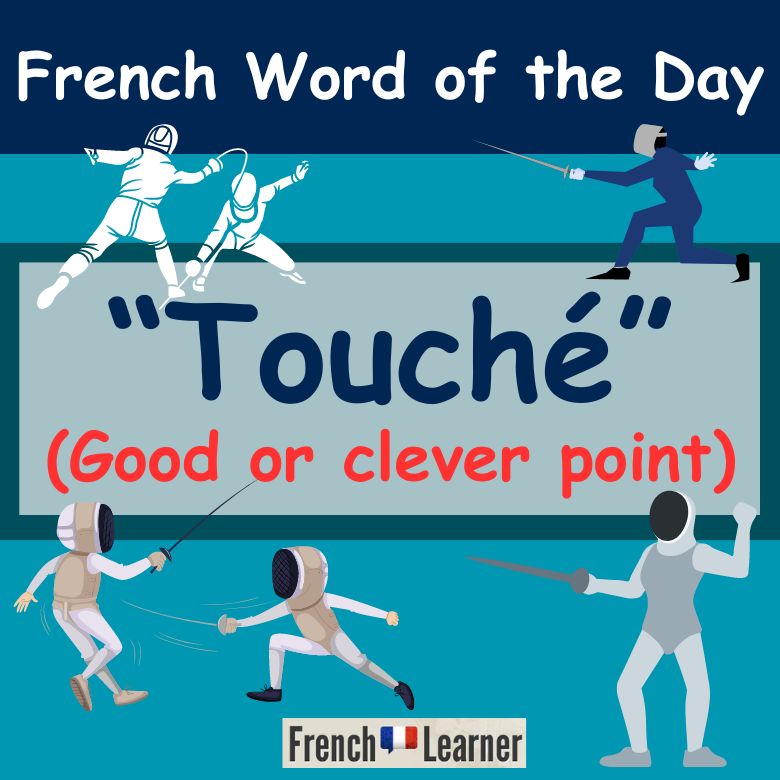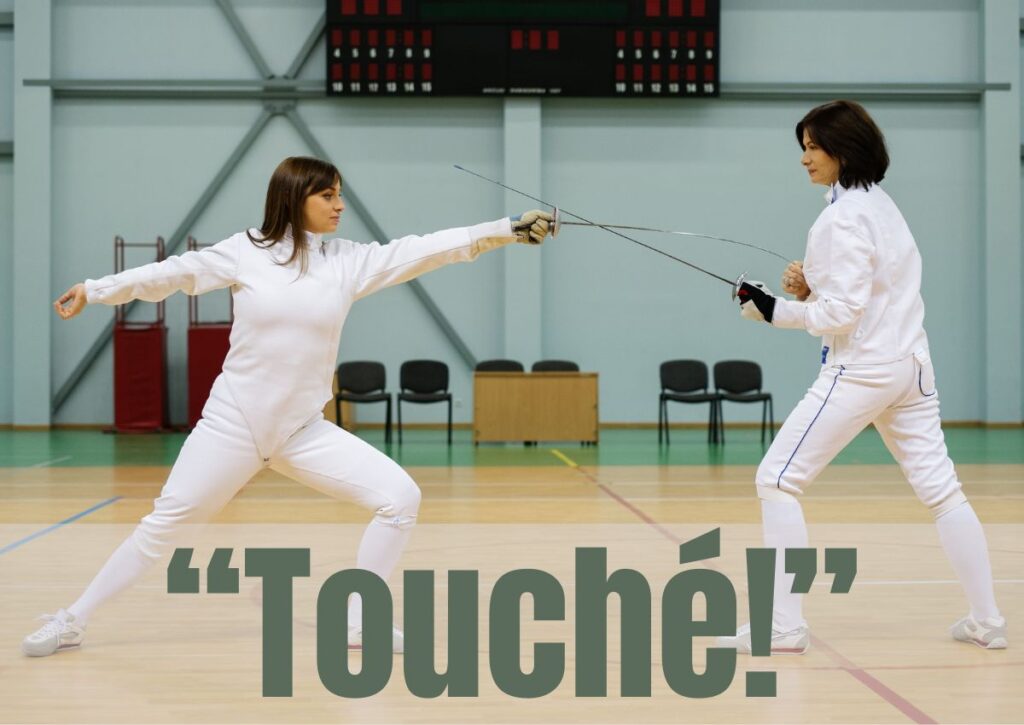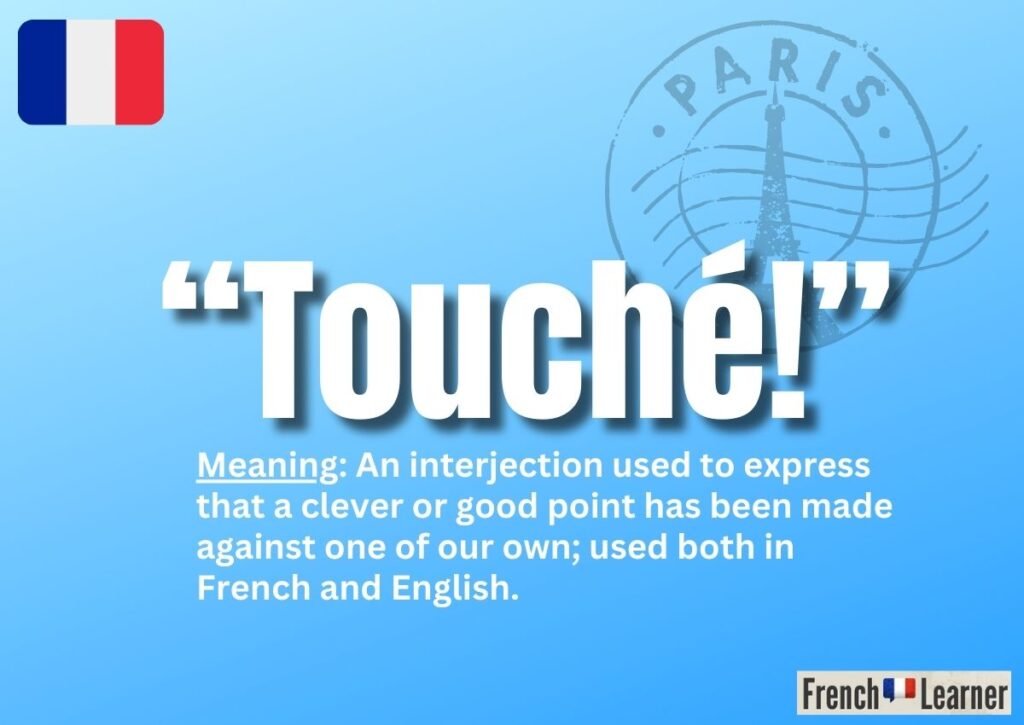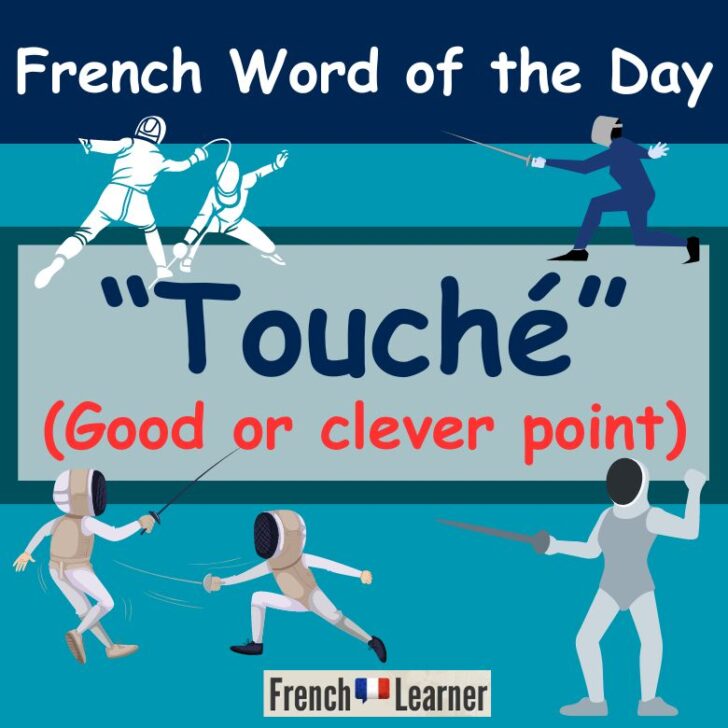Both French and English use the word touché. In English, touché is used when conceding to an argument. The French language also uses touché but has several other fun expressions used to make the same point. Keep reading learn these expressions and repeat with the audio!
touché
good or clever point!

Touché meaning in French
The French use touché in the same conversational and casual way as English speakers do, but they use it more rarely. If you want to acknowledge that someone has made a good point against your own argument you can instead say:
Tu marques un point.
Direct translation: You get a point.
Bien vu.
Direct translation: Well seen.
Très juste.
Direct translation: Very spot-on.
Je m’incline.
Direct translation: I bow down.

Touché meaning in English
It won’t come as any surprise that the word touché comes from the French. Originally brought into the English language in 1907, touché came from the old French verb tochier, which meant “to touch, hit, or knock” and originally came from fencing. Today, the French use the verb toucher to mean to touch or to hit.
In English, we use touché to acknowledge that a clever or good point has been made against one of our own. An example of this would be:
“You always say we should support the American economy, but you only drink French wine.” –“Touché.”
Here the person who said “touché” is acknowledging that his speaking partner made a good point against his own. In a similar manner, touché is also used in fencing in order to acknowledge that you’ve been hit by your opponent.
More uses and translations of touché
But touché is also used in more serious matters. If a missile hits its target, the person in charge of the operation might say “touché” when it touches down.
The French also use touché when someone scores a touchdown in an American football game. Unsurprisingly, touché is, like in English, used in fencing when a player has been hit by their opponent.
As a verb toucher can also mean to touch, feel, affect or concern. It is one of the more versatile French verbs, which means that its meaning often changes based on the context.
If you’re not sure when to use touché, you can always double check with a French speaker to be sure. But, as always, listening and watching French speakers in movies, music, or TV shows is one of the best ways to get exposure to real life context clues.
Overall, the French touché and the English touché have their similarities, but they aren’t always used in the exact same way so use your best judgment and learn as you go.




